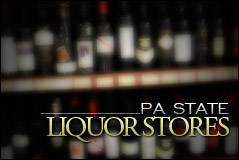Media

Fact Check, Please! Anti-Liquor Privatization Study Falls Short
As several states (Pennsylvania, Virginia, and Oregon) look to rid themselves of antiquated government-run liquor systems, the defenders of state-control status quo are fighting back harder than ever. And some aren’t letting facts get in the way of their arguments.
More than a year ago, Washington state privatized liquor sales. Opponents of privatization in Oregon are nervously looking north, and touting a new “study” that shows emergency room visits in Washington have increased, as have thefts of liquor stores and alcohol accessibility to minors. The study, though, was actually a PowerPoint presentation by longtime liquor privatization opponents. Last week in Forbes, Donald Rieck, Executive Director of Statistical Assessment Service noted that many of the study’s claims are dubious at best and ignore general positive trends following privatization in Washington state.
In fact, according to the Washington Health Youth Survey, binge drinking (at historic lows) and other levels of problem drinking declined for grades 8, 10, and 12. There continues to be growing awareness among the same age group of alcohol’s harmful effects. As for the other questionable claims, Rieck notes, “the preponderance of data on the effects of privatization on Washington State suggests the exact opposite of the meaning conveyed by the [study].”
As we have continually detailed, liquor privatization does not lead to an increase in social problems, nor is there a correlation between government control of liquor and safety. Thankfully, the rhetoric here in Pennsylvania about the collapsing of society’s social fabric isn’t fooling anyone: More than 60 percent of Pennsylvanians support liquor privatization.
It’s time to end the conflict of interest ingrained in Pennsylvania’s state system that promotes and regulates alcohol.